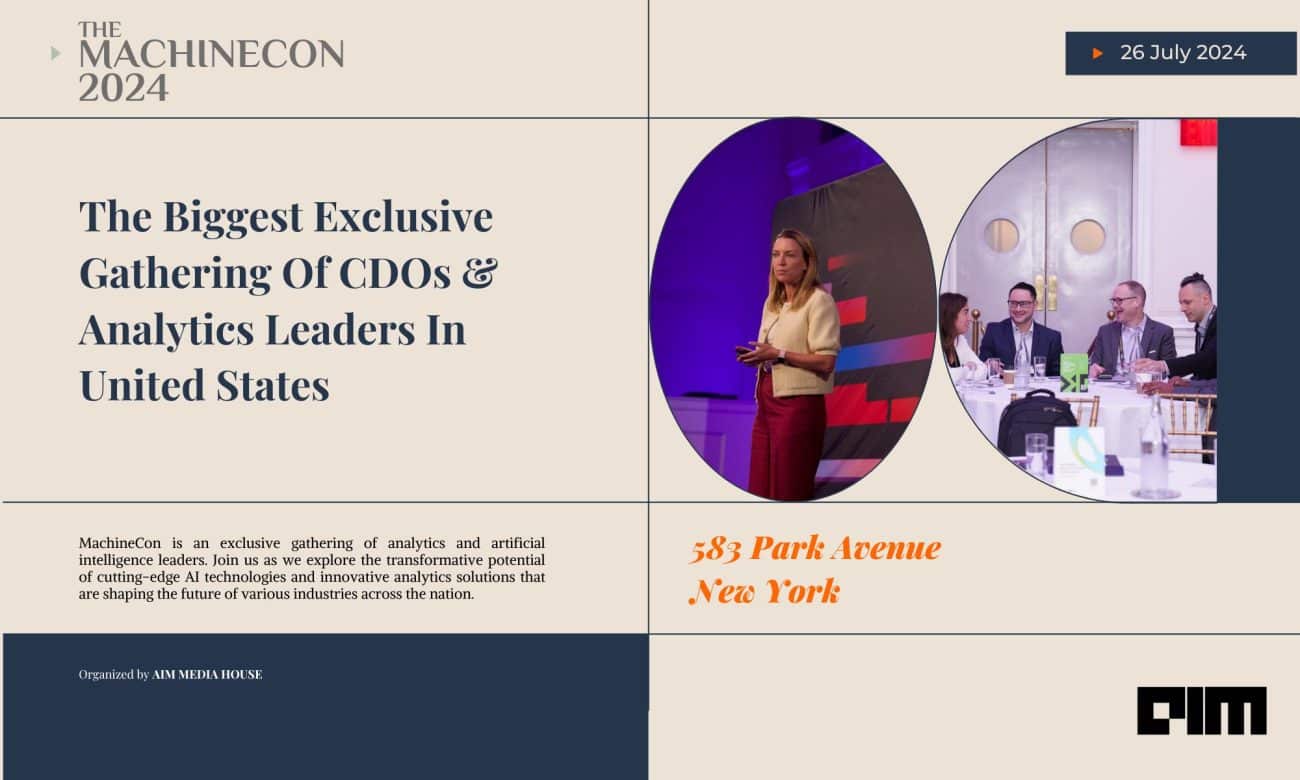Anurag Verma, CEO at MathLogic
 Analytics has a buzz and hype around it and almost all organizations around the world are keen to do “Analytics”. I also know a lot of organizations are struggling with where to fit analytics in their existing structure. I know of cases where analytics teams have been clubbed with existing IT team, Finance team, Marketing team, Strategy team even legal team.
Analytics has a buzz and hype around it and almost all organizations around the world are keen to do “Analytics”. I also know a lot of organizations are struggling with where to fit analytics in their existing structure. I know of cases where analytics teams have been clubbed with existing IT team, Finance team, Marketing team, Strategy team even legal team.
In my view, organizations need a longer term view about their analytics efforts. It is not a one time implementation of technology or process or team but rather a journey. At a philosophical level, analytics efforts need to be integrated in organization where decision making happens. Practically, look at decision areas that are critical to business and ask the questions – Are we making those decisions based on data or gut feel? Is there scope for collecting and analyzing more data to make better decisions? Are we directing analytics effort to those areas? Are the top executives relying on data for taking decisions and doing course correction? If the answer to any of the questions is No then probably organization can do more in terms of directing their analytical efforts.
Here are a few things that organizations should be doing
1. Pay attention to Data Quality: Remember the GIGO role. Garbage in Garbage Out. While it is not required that organization has 100% accurate data there needs to be a conscious effort to improve data quality, including looking at new/ additional data sources from both within and outside the organization. It would pay them rich dividends over time.
2. Develop analytical mindset in the organization: This applies to all kinds of businesses, both big and small, especially if they happen to be relatively new to analytics. There are two kinds of reactions we have seen. One is that analytics is a one stop solution to solving all issues and second is a general reluctance to the idea of analytics – some of it gets cloaked by reasons cited like unavailability of data, IT infrastructure, bandwidth from management, etc. Some of this is understandable and it is important that organizations that want to set on the analytics journey bake in some time and investment in change management as it will solve for some of the mindset issues.
3. Measure results: Some organizations make the mistake of not measuring/ quantifying the benefits or results from using analytics. They are missing on tremendous opportunity to refine decision making and getting even greater benefits. Organizations will realize the potential of analytics once they start tracking the benefits and ROI to their analytics investments. This will also help them prioritize the areas and channelize their investments to optimize on the effort. It will also help the analytics fraternity as there will be more objective evidence of benefits.
[divider top=”1″]
 Vinay Mantha, Head of Analytics COE at Sapient Nitro
Vinay Mantha, Head of Analytics COE at Sapient Nitro
The first and foremost need of the hour is to move beyond the world of extensive data reporting (Data puking as analytics guru Avinash Kaushik calls it). Many organizations, particularly in APAC are still stuck in this quagmire. Just as a picture is worth a thousand words, to me, an “Insight” is worth thousand tables of data. For this very reason, I always insist that every analysis deliverable my team produces first contains the list of key insights and recommendations, with supporting tables/graphs pushed into an Appendix if necessary. The root cause of this massive reliance on pure reporting is because senior management of these firms under-realize the importance of analytics and as such never invest in the right talent.
My second recommendation would be to grant a level of authority and autonomy to the analytics team to take an unbiased stand and challenge the marketing team on the value/performance of specific marketing initiatives. Having the lead of the analytics team directly report to senior management can provide the necessary organizational leverage to do so.
My third and final recommendation is for businesses to understand that analytics is not solely a quantitative power play. There is a qualitative aspect of analytics as well. It is very important to make sure you analyze data sources such as customer surveys on your site and your social ecosystem to ensure that there is a synergy between what you perceive of your brand versus what end-users perceive of your brand. Instant action thereby, is critical to ensure that any negative sentiment does not go viral.
[divider top=”1″]
 Amit Batra, Managing Partner at Industrial Data Research Corporation
Amit Batra, Managing Partner at Industrial Data Research Corporation
Analytics is a force to be reckoned with. It’s not just ‘nice’, but a working tool. Organizations ranging from Amazon, to Inditex, all the way to the Obama campaign have understood this, harnessed this, and changed the rules of engagement.
Still many many organizations, even those who are bleeding, and under whose feet the ground is shifting, fail to acknowledge this. It’s a changed game, and the senior management’s need to adapt. Analytics is the next big thing, the next golden key, the next holy-grail, and senior managers need to embrace it. Implemented well, they will be pleasantly surprised at the resourcefulness of analytics and its impact on the top-line and bottom-line. They will be amazed to see how much of this is available free in the open-source domain.
A caveat, that a half-hearted, reluctant mandate will not produce anything except wastage. Organizations across the board need to adopt IDRC-like framework of Quant Research Centers, QRCTM, and house one within, not as a silo but integrated to the mainstream business (just as MIS departments were created a couple of decades back). In terms of people, not just anybody or somebody, but specially and specifically trained analysts can only produce anything useful.
IDRC, with its express audit built into the ProcessAnalytics framework, offers short and effective firm-specific audit, and one-on-one with the senior managers needing to embark on harnessing analytics.
[divider top=”1″]
 Venkatesh Juloori, Partner at Meritus Analytics
Venkatesh Juloori, Partner at Meritus Analytics
A few thoughts come to mind. The first is the view that there isn’t sufficient data for the analysis, but we would suggest that starting with what’s available is the fastest route to making unavailable data available!
The second is the need to establish credibility that analytics really works and third is to embed and use analytics in everyday decision making. Many a time analytics ends up being a check-list rather than a decision support tool.
[divider top=”1″]
 Dr. Ashish Goel, AGM Pharma Analytics at HCL
Dr. Ashish Goel, AGM Pharma Analytics at HCL
Try understanding the business context and objective than selling analytical tools and techniques. Generate insights and not just classical BI dashboards.
Try to answer the “so what” than just saying we can provide resources having SPSS/ SAS capabilities.

































